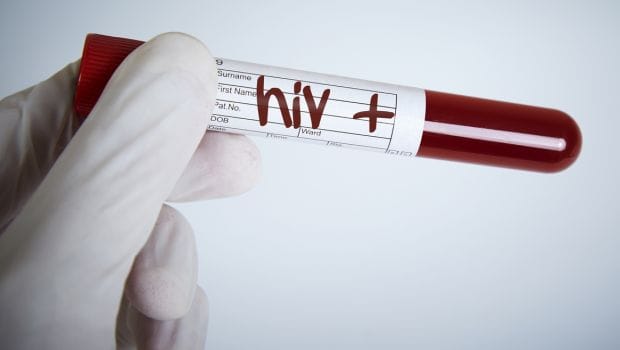World AIDS Vaccine Day 2020: The day is meant to raise awareness about HIV/AIDS and the need to have to a vaccine against HIV. Here's everything you need to know.

World AIDS Vaccine Day is obsereved on May 18
HIGHLIGHTS
- Around 37.9 million people were living with HIV globally in 2019
- It is thus important to have vaccine against HIV
- AIDS is the most advanced stage of HIV
World AIDS Vaccine Day is observed on May 18. The day is observed in order to raise awareness about Acquired Immunodeficiency Syndrome, Human Immunodeficiency Virus (HIV, which causes AIDS) and the need to have a vaccine against HIV. It has been four decades since the outbreak of HIV/AIDS epidemic and there's still no vaccine. According to the World Health Organization, AIDS has claimed approximately 32 million lives till now and has affected 75 million people across the globe. It is because of these reasons that HIV vaccine awareness day or World AIDS Vaccine Day is observed.
World AIDS Vaccine Day: Know the significance
Vaccines are the most cost-effective and powerful tool to prevent deadly viral infections. It is important to have AIDS vaccine as around 37.9 million people were living with HIV globally in 2019, according to research journal Avert.
HIV targets the immune system and weakens people's defence systems against infections and some types of cancer. The virus destroys and impairs function of immune cells. People infected with HIV gradually become immunodeficient. This puts you at risk of a wide range of infections, cancer and disease which people with an efficient immune function can fight off.
AIDS is the most advanced stage of HIV. It can take from two to 15 years to develop if not treated. According to WHO, AIDS is defined by development of certain cancers, infections or severe clinical manifestations.
Signs and symptoms of HIV/AIDS
HIV can cause symptoms depending on the stage of infection. People with HIV tend to be most infectious during first few months after being infected. Many people remain unaware of their status until the disease progressed to an advanced stage.
People experience the following few symptoms during initial stages:
- Fever
- Headache
- Rash
- Sore throat
As the infection progresses, it weakens the immune system further. The signs and symptoms include:
Weight loss
- Swollen lymph nodes
- Diarrhoea
- Cough
- Tuberculosis
- Bacterial infections
- Cancer
The likes of last three symptoms in the aforementioned list begin to appear if you don't get treatment for HIV/AIDS.
HIV/AIDS: Transmission and risk factors
Exchange of body fluids like blood, breast milk, semen and vaginal infections can lead to transmission of HIV. The infection can be transmitted from mother to her child during pregnancy and delivery. HIV does not spread through day-to-day contact like shaking hands, sharing personal objects, food or water.
One is at risk of contracting HIV in case of having unprotected intercourse, having other sexually transmitted infections like gonorrhoea, chlamydia, herpes, sharing needles and other injection equipment, receiving unsafe injections, blood transfusions and tissue transplantation, etc.
Disclaimer: This content including advice provides generic information only. It is in no way a substitute for qualified medical opinion. Always consult a specialist or your own doctor for more information. NDTV does not claim responsibility for this information.
DoctorNDTV is the one stop site for all your health needs providing the most credible health information, health news and tips with expert advice on healthy living, diet plans, informative videos etc. You can get the most relevant and accurate info you need about health problems like diabetes, cancer, pregnancy, HIV and AIDS, weight loss and many other lifestyle diseases. We have a panel of over 350 experts who help us develop content by giving their valuable inputs and bringing to us the latest in the world of healthcare.














